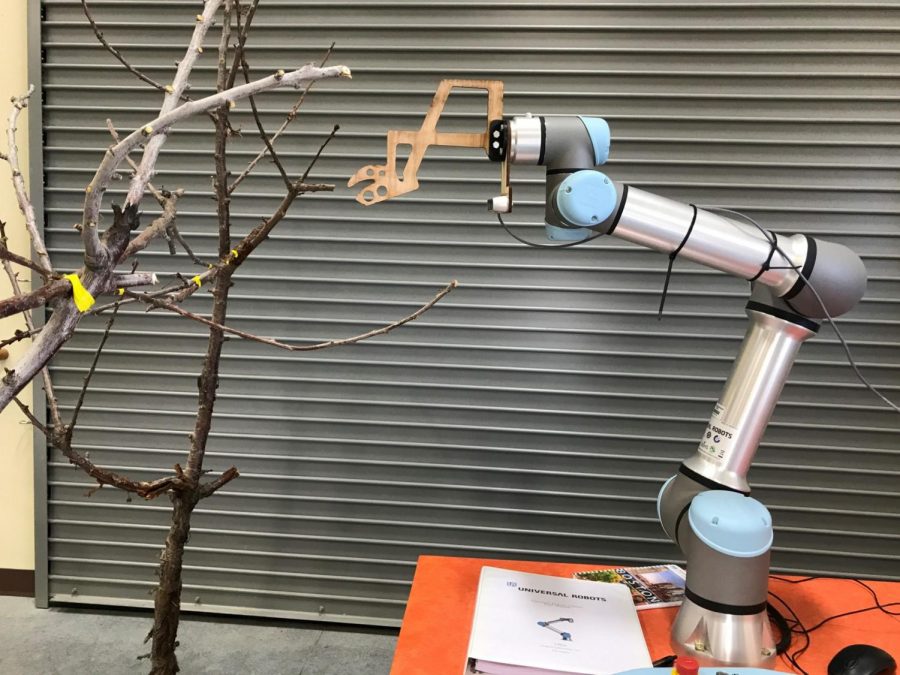System will detect flower location using cameras, have mechanical arm to pollinate flowers
COURTESY OF MANOJ KARKEE
Manoj Karkee, associate professor in WSU’s Department of Biological Systems Engineering, has worked on several projects including a robotic system that selectively prunes fruit tree branches.
Researchers at WSU and Pennsylvania State University are collaborating to create a robotic system that will artificially pollinate fruit tree flowers due to threats to natural pollination worldwide.
The robotic system will be able to detect where flowers are using cameras and a computational system and algorithm. The system will have a mechanical arm and hand to reach the flowers it is trying to pollinate, said Manoj Karkee, associate professor in WSU’s Department of Biological Systems Engineering.
The pollen will be in a liquid suspension that allows it to stay alive, so it can be applied to the flowers, said Matthew Whiting, professor in WSU’s Department of Horticulture.
The researchers will need to find out the best place to deposit the pollen in the flowers as well as when the flowers are ready to be pollinated, he said.
“There’s only a short period when each flower is ready for and can receive pollen,” Whiting said.
Climate change is a threat to pollination. It has changed when different fruit crops flower, he said.
Pollenizer trees flower at specific times, and when one of its flowers blooms, it typically releases its pollen in one day. However, multiple flowers on a tree bloom at different times, Whiting said, usually within a span of one week.
Bees cannot carry pollen from a pollenizer tree’s flowers to a fruit tree’s flowers if the flowers are not blooming at the same time, Whiting said.
This problem makes it difficult for growers to produce consistent crops, he said.
Another dilemma to pollination is colony collapse disorder, which occurs when most worker bees leave their colony, according to the EPA website. It has led to a decrease in European honey bee hives and fewer hives for commercial pollination services, Whiting said.
“There are these uncertainties and inefficient pollination outcomes that is there with the natural pollination process, which the robotic system would like to overcome,” Karkee said.
The research will focus on pollinating Washington’s main fruit crops: apples and sweet cherries, Whiting said.
“If and when we demonstrate the feasibility in these two crops,” Karkee said, “I believe this could be expanded to other crops where pollination is necessary.”
WSU received a $1 million grant for this research from the United States Department of Agriculture, Karkee said.
While both universities are collaborating on all activities, WSU will focus on the camera and image processing system while Penn State’s research will center around developing a model to find the best time to apply pollen. Both universities will test the robotic system in the field, Karkee said.
“The role of pollinators in agriculture is so fundamental, particularly for fruit and vegetable crops,” Whiting said. “We need to find alternative and sustainable methods for producing high-quality fruits from Washington state, and this is a key part of that for the future.”
"fruit" - Google News
June 26, 2020 at 02:03PM
https://ift.tt/2BElRtl
Researchers to create robotic system for fruit flower pollination - The Daily Evergreen
"fruit" - Google News
https://ift.tt/2pWUrc9
https://ift.tt/3aVawBg
Bagikan Berita Ini















0 Response to "Researchers to create robotic system for fruit flower pollination - The Daily Evergreen"
Post a Comment